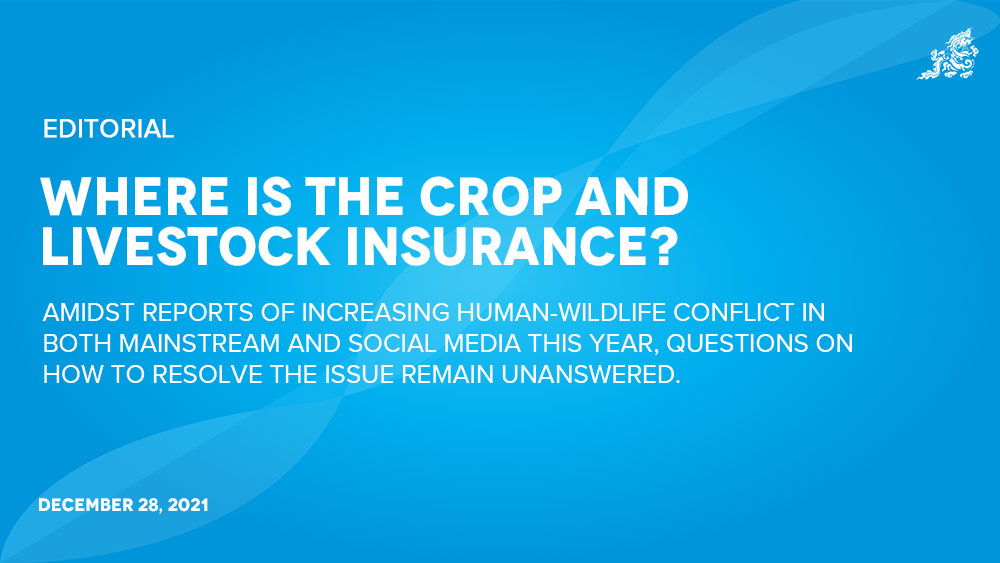Amidst reports of increasing human-wildlife conflict in both mainstream and social media this year, questions on how to resolve the issue remain unanswered.
A family in Tashicholing, Samtse, watched helplessly when an elephant rampaged their kitchen on the morning of December 25. In Gelephu, elephants ravaged farms, wrecked makeshift homes and even threatened human lives. In the past, it even killed farmers trying to guard their fields or homes.
Many farmers lose their year’s hard work to wild boars in the country. Social media pages were flooded with images and videos Himalayan Black bears prowling as close as the IT Park area in Thimphu and Shaba in Paro recently. A bear mauled a man in Tsirang.
Forestry officials cautioned joggers in dzongkhags and in the capital city of freely roaming bears. They claimed sighting of wild animals near urban settlements has been unusual this year.
In a country that champions conservation efforts, human-wildlife conflict has become a major issue. The animals are coming closer to human settlement because humans are competing with them for the limited resources.
Human-wildlife conflict management strategies like the electric fencing, sound and light system and grasses are increasingly becoming ineffective.
While most mitigating strategies are becoming obsolete, insuring crop and livestock is a necessity.
The Parliament, in its fifth session, decided that the government should provide adequate compensation to farmers against the loss of crops to wildlife and natural disasters. The Cabinet, during its 69th Lhengye Zhungtshog session last year, directed relevant ministries to initiate the national crop and livestock insurance scheme. But the directives did not translate into action.
The agriculture ministry discussed it with an insurance companies and submitted a joint recommendation to the finance ministry, but the ministry had indicated its inability to provide financial support for crop and livestock insurance schemes owing to the Covid-19 pandemic.
The finance ministry also cited lack of proper data on crop and livestock depredation even after knowing that farmers complain about their loss to relevant officials. We know we are not good record keepers and most data or information go missing when an official resigns or gets transferred. Maintaining data should be easier with officials even at the gewog level equipped with computers and other relevant technologies.
The lack of implementation of Parliament and cabinet decision also comes when there is already an endowment fund of Nu 20M since 2019. Allocating the fund will not help our farmers who grapple with the issue on a daily basis, if it is not used.
For harmonious and peaceful coexistence of wildlife and farmers, it is important we set the priorities right. Compensating our farmers for the loss of crops and livestock will help both farmers and the country achieve our conservation goals.


